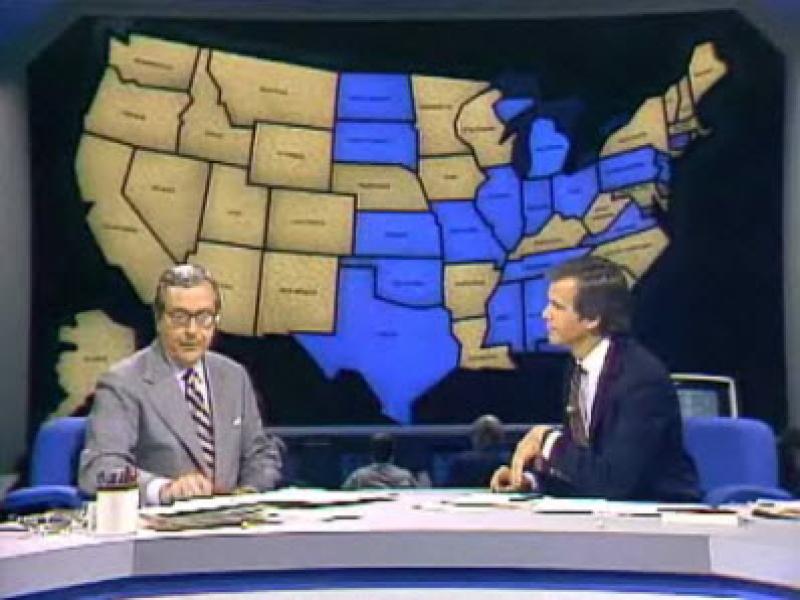
Over the last five years, our politics and public policy has too often resembled a dumpster fire. This week was no different, and discouraging to say the least. Personally, I find solace in reading American history, the accounts of the men and women who had, to steal Tom Wolfe’s phrase, “the right stuff,” often at a time when the country really needed it.
If you are looking for two terrific books to scratch that itch, you can do no better than The American Story; Conversations with Master Historians (2019) and The American Experiment: Dialogues on a Dream (2021), both written by David M. Rubenstein. They’re the product of scores of interviews with luminaries that Rubenstein has conducted for a variety of organizations like the New York Historical Society, the Library of Congress’s Congressional Dialogue series, and the Smithsonian Institution, as well as his shows for Bloomberg television and Public Broadcasting.
As many know, after stints practicing law and working on Capitol Hill and in the Carter White House, Rubenstein cofounded The Carlyle Group, a hugely successful Washington-based private-equity firm.
There is an old line about people who come to Washington to do good and end up doing well. You can flip that around about David Rubenstein. He did well, then proceeded to do a lot of good, engaging in what he calls “patriotic philanthropy.” When the Washington Monument was badly damaged in the 2011 earthquake, Rubenstein stepped forward with $10 million towards repairing the damage and reopening it to the public. When historic buildings such as Mount Vernon, Monticello, Montpelier, and Arlington House (at Arlington National Cemetery) fell into disrepair or needed major renovations or additions, Rubenstein picked up part of the tab. The same for the Lincoln and Jefferson Memorials, the construction of the Smithsonian’s National Museum of African American History and Culture, and an addition to the Kennedy Center. When the last remaining copy of the Magna Carta in private hands went up for auction, Rubenstein bought it and permanently loaned it to the National Archives. He’s also purchased and loaned copies of the Declaration of Independence, the Emancipation Proclamation, and the 13th Amendment, which abolished slavery in the South, to various museums around the country.
Rubenstein’s net worth has been variously estimated to be $3 billion (The New York Times), $3.5 billion (NPR), and $4.2 billion (Forbes). It’s a good bet that if his charitable giving thus far hasn’t already tipped from nine figures to 10, it won’t be long.
But Rubenstein’s less tangible contribution is as a terrific interviewer. Thanks to his casual, self-effacing manner, he lands sit-downs with historical figures and leading authorities. He certainly doesn’t engage in gotcha interviewing (in fact, some questions can even come across as softballs), but there’s a method here: coaxing his subjects into telling stories.
I took in several of these interviews on a long, solo driving trip recently, although several are available only in print.
Each of the 16 chapters of The American Story spans a conversation with some of the best historians and biographers in the business—Taylor Branch, Douglas Brinkley, Robert Caro, Ron Chernow, Doris Kearns Goodwin, Walter Isaacson, David McCullough, and Jon Meacham, to name a few. They dissect the lives of everyone from the Wright Brothers to Dwight Eisenhower, from Benjamin Franklin to Richard Nixon. A charming interview with the late Cokie Roberts concerns the “Founding Mothers.”
The American Experiment: Dialogues on a Dream comprises chats with 27 biographers and authorities such as Michael Beschloss, Ken Burns, and Henry Louis Gates Jr.; artists like Wynton Marsalis and Rita Moreno; and sports legends like Billie Jean King and Cal Ripken Jr.
Particularly interesting were Elaine Weiss on the history of the women’s-suffrage movement, National Institutes of Health Director Francis Collins on the human genome project, and Congressional Medal of Honor winner Jack Jacobs. Scott Berg, the leading biographer of aviator Charles Lindbergh, was nothing short of riveting. So much of what I knew, or thought I knew, turned out to be not only wrong but almost the opposite of what Berg’s research revealed. You will be stunned when you read about the five Yale students who effectively started the “America First” movement to keep us out of World War II, and who they became later in life.
Another high point for me was the interview with Supreme Court Justice Sonia Sotomayor on her journey to the highest bench, and how the TV show Perry Mason inspired her. More importantly, she spotlights the crisis in civic education (Vermont is the only state where a majority of citizens could pass the immigration test). Sotomayor’s case for restoring civic education in schools is compelling.
She takes a statistic from The Wall Street Journal’s Lee Hawkins, that for every $50 spent by the federal government on STEM education, only five cents is devoted to civics. As many have noted, the decline in civil discourse in this country parallels a decline in the emphasis of civics in our schools.
But until our schools catch up, the rest of us can make do with the work of David Rubenstein.
This article was published for the National Journal on October 5, 2021.


Subscribe Today
Our subscribers have first access to individual race pages for each House, Senate and Governors race, which will include race ratings (each race is rated on a seven-point scale) and a narrative analysis pertaining to that race.